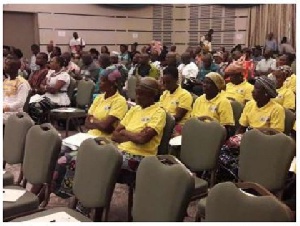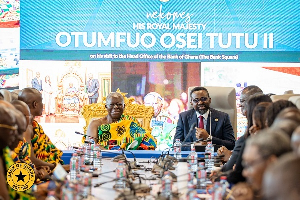More than 7,000 people from 92 communities in eight districts in the Upper East Region have received the total of GHC 6.5 million as grant to undertake micro-enterprise activities.
This was after the beneficiaries had undergone business management and vocational skills training under a project dubbed: “Supporting Rural Income Generation of the poorest in the Upper East Region”.
The beneficiary districts were Builsa South and North, Kassena-Nankana West, Bongo, Talensi, Garu tempane and Bawku West.
Majority of the beneficiaries are engaged in grain and nuts processing, animal rearing, rope and basket weaving, soap making and dry season gardening.
The grant was provided by the Japanese Support Development Fund (JSDF).
This was made known at a knowledge-sharing event on JSDF in Accra.
Mr Collins Ntim , a Deputy Minister of Local Government and Rural Development, said the management of the JSDF scheme used community-based targeting approach in selecting the beneficiary communities.
He said the JSDF was engaging with business Advisory Centres (BACs) at the district level to identify viable micro business enterprises suitable to each peculiar locality, taking into account availability of market and raw materials.
He said following the success of the JSDF scheme, the Ministry had decided to feature productive inclusion as a major strategy in the country’s rural development policy.
Mr Rockson Bukari, the outgoing Upper East Regional Minister, in a speech read on his behalf, expressed appreciation to the Japanese Government and the World Bank for piloting the project in the region.
He said feedback from the communities indicates that beneficiaries were now able to meet many of their household needs.
Ministry of Local Government and Rural Development says the investment is expected to generate GHC 16.2 million worth of products annually.
The JSDF is a scheme created to support the poorest of the poor to establish sustainable and complementary income generation activities through skills training, provision of grants and mentoring for a fixed period after the establishment of a micro enterprise.
The project, which began in January 2015 ends on August 18 this year.
Regional News of Saturday, 18 August 2018
Source: ghananewsagency.org













